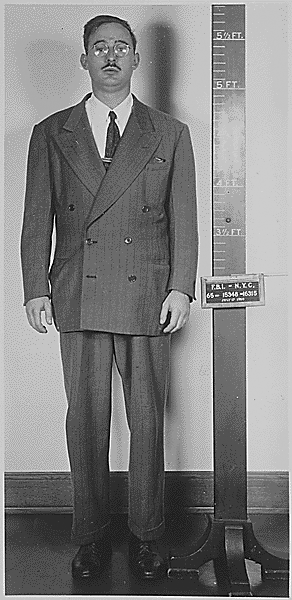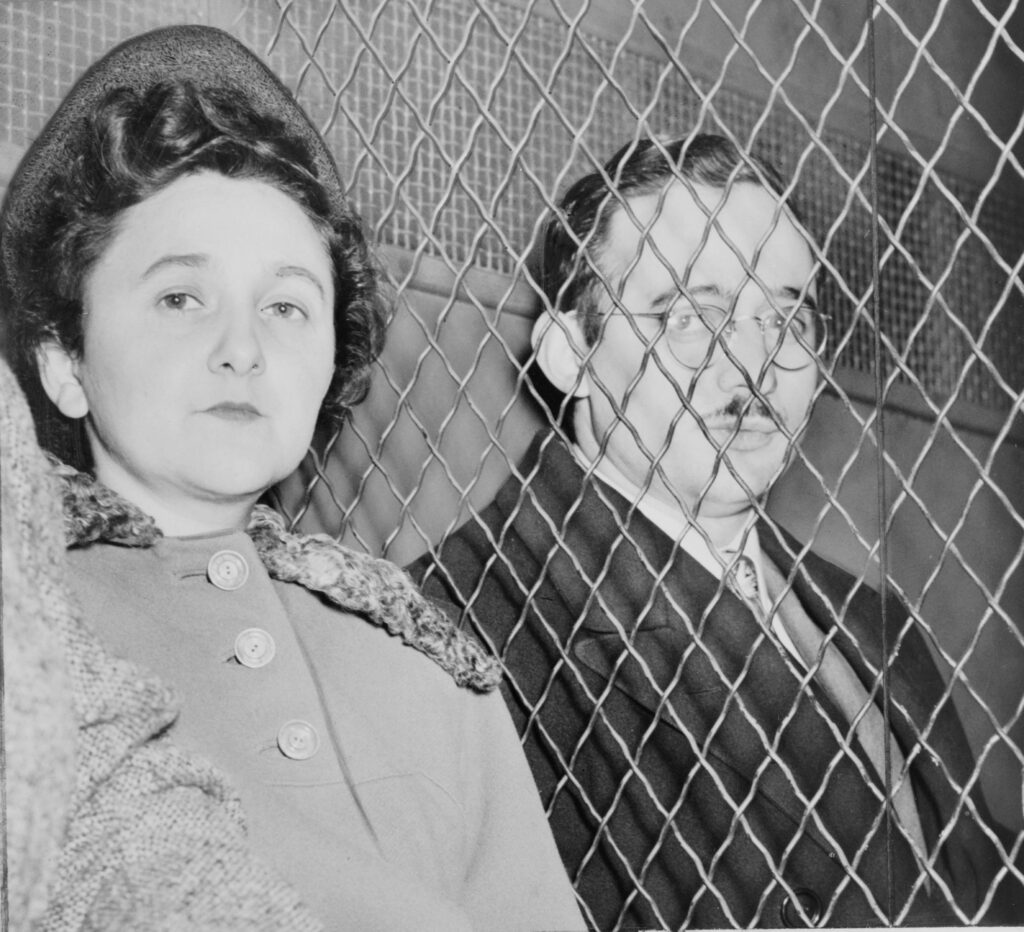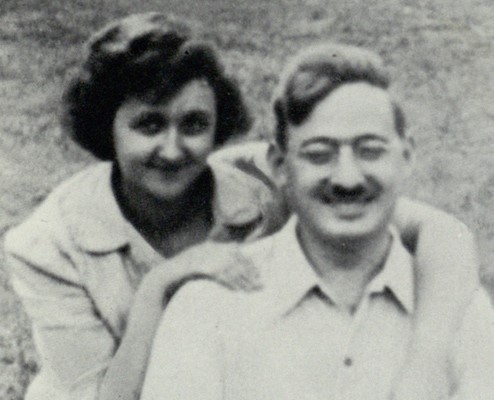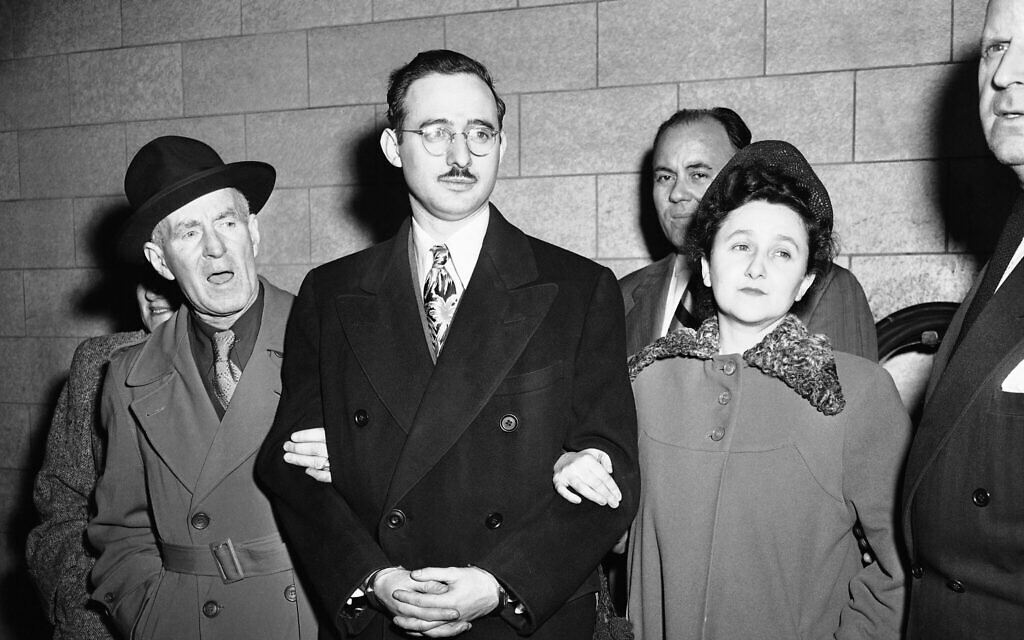Part of Our Ongoing Series Examining Significant Events of the Past
The case of Julius and Ethel Rosenberg — sentenced to death 73 years ago today — remains one of the most significant and controversial episodes in American legal history. Accused of espionage and passing atomic secrets to the Soviet Union during the height of the Cold War, their trial and subsequent execution sparked intense debate, raising questions about justice, loyalty, and the limits of government power. Let’s take a brief look at the events leading up to their sentencing, the trial itself, and the lasting impact of the Rosenberg case on American society.
The Espionage Allegations
In the late 1940s, as tensions between the United States and the Soviet Union escalated, allegations of espionage and the theft of atomic secrets were rampant.
Julius Rosenberg — a former engineer and member of the American Communist Party — and his wife Ethel Rosenberg were arrested in 1950 and accused of being part of an extensive spy ring. The U.S. government contended that they had conspired to pass classified information about the atomic bomb to the Soviets. The charges against the Rosenbergs were particularly grave, as they were accused of aiding America’s Cold War adversary in obtaining the knowledge necessary to develop nuclear weapons.

U.S. National Archives and Record Administration, Public Domain, https://commons.wikimedia.org/w/index.php?curid=1220296
The Trial
The trial of Julius and Ethel Rosenberg began on March 6, 1951, in New York City. The prosecution’s case relied heavily on the testimony of Ethel’s brother, David Greenglass, who claimed that Julius had recruited him to obtain classified information from the Manhattan Project, America’s top-secret atomic research program. Greenglass further alleged that Ethel had typed up the stolen documents. Despite inconsistencies in Greenglass’s testimony, the jury found the couple guilty of espionage.
The Rosenberg case was mired in controversy from the start.
Many critics argued that the trial was politically motivated and that the evidence presented against the Rosenbergs was weak. The defense maintained their innocence, claiming that they were victims of anti-communist hysteria and a flawed legal system. It is worth noting that the Cold War climate of fear and suspicion fueled public sentiment against the accused, making it difficult for the defense to receive a fair trial.

Image By Roger Higgins — Public Domain, https://commons.wikimedia.org/w/index.php?curid=1309692
Sentencing and Execution
On April 5, 1951, Judge Irving R. Kaufman sentenced Julius and Ethel Rosenberg to death for their crimes. The decision sparked international outcry and led to pleas for clemency from around the world. Despite the controversy surrounding the case, the Rosenbergs’ appeals were ultimately denied.
On June 19, 1953, the couple was executed in the electric chair at Sing Sing Prison in New York. The Rosenbergs’ execution marked the first time in the United States that a married couple had been put to death for espionage. Their deaths intensified the debate over the severity of their punishment, with some arguing that they were the victims of an unjust legal system and others asserting that they had committed treason and deserved the ultimate penalty.
Legacy and Impact
The Rosenberg case had a profound and lasting impact on American society. It highlighted the dangers of McCarthyism and the excesses of the anti-communist fervor that gripped the nation during the Cold War. The trial and execution of the Rosenbergs became a symbol of government overreach and the suppression of political dissent.
In subsequent years, revelations emerged suggesting that Julius Rosenberg had indeed engaged in espionage activities, although the extent of Ethel’s involvement remains a subject of debate. Nonetheless, the case continues to evoke strong emotions and remains a cautionary tale about the delicate balance between national security and civil liberties.
* * * * * * * * * * * * * * *
So there you have it. Even 73 years later, the sentencing and execution of Julius and Ethel Rosenberg in 1951 remains a contentious and divisive event in American history. The case serves as a reminder of the complex intersection of politics, justice, and loyalty during times of intense national security concerns. The legacy of the Rosenberg case underscores the importance of safeguarding civil liberties and preserving the integrity of the legal system, even in the face of legitimate security threats. By examining this chapter of history, we can gain valuable insights into the challenges of balancing individual rights with national security imperatives.
By Steven Roberts



